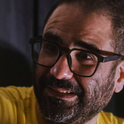In her splendid summary of the fissures that threaten the integrity of the American electoral system, Dahlia Lithwick invokes a Buddhist story about a “shattered bowl” that “was already broken in the first place” to describe our situation as we hurtle toward the 2020 presidential election.
We do not share Lithwick’s pessimism. Let’s begin with the broken bowl, a story told by Ajahn Chah, an influential 20th-century Buddhist monk and teacher. “Do you see this glass?” Chah asked. “I love this glass. It holds the water admirably. When the sun shines on it, it reflects the light beautifully… But when I understand that this glass is already broken, every minute with it is precious.” When we see our democracy for what it is, a delicate edifice already cracked and compromised, we can focus our attention on the glue that holds it together: trust. Trust in one another, in our institutions, and perhaps even in our elected officials.
As Lithwick observes, trust has been on the wane for decades, and not just in the US. Eroding trust is an issue facing democracies around the world. Whether this erosion results from persistent efforts by authoritarian interests or less sinister forces, there is little we can do at this late date to restore trust already lost. Like decarbonisation, it takes longer to reverse the problem than to create it. The best we can do is continue to act with integrity and transparency, guided by principles of decency and fair play. Even if we are convinced the other side is cheating (and they believe the same of us), we must play by the rules set forth in our Constitution.
Sowing distrust and persuading citizens that participation is futile are the very tactics employed by Trump and his antidemocratic brethren. If we were guided by Lithwick’s conclusion—that the trust essential to making democracy work is already gone—then the serious work of planning litigation, protecting vulnerable voters, and countering lies might as well be abandoned as pointless. In truth, we cannot say with certainty when the bonds of trust that hold the chalice of democracy together will finally give way. Our electoral system is so complex and dynamic, with so many inputs and chaotic interconnections, that the outcome is impossible to predict.
We can’t know whether we will succeed in overcoming prophesies of the American experiment’s demise. But to enact daily the hope that we will is not a matter of blind optimism but rather one of well planned, aspiration-driven, reality-based advocacy, organisation, and carefully timed execution. We have our work cut out for us. Let’s get to it.
Laurence H Tribe is Carl M Loeb University Professor and Professor of Constitutional Law Emeritus at Harvard University. Mark Tribe is a contemporary artist, Chair of the MFA Fine Arts Department at the School of Visual Arts, and the founder of Rhizome, an organisation dedicated to born-digital art and culture
The chalice of American democracy—a response to Dahlia Lithwick
We still have hope for the future of the great American experiment
September 09, 2020

Shutterstock












